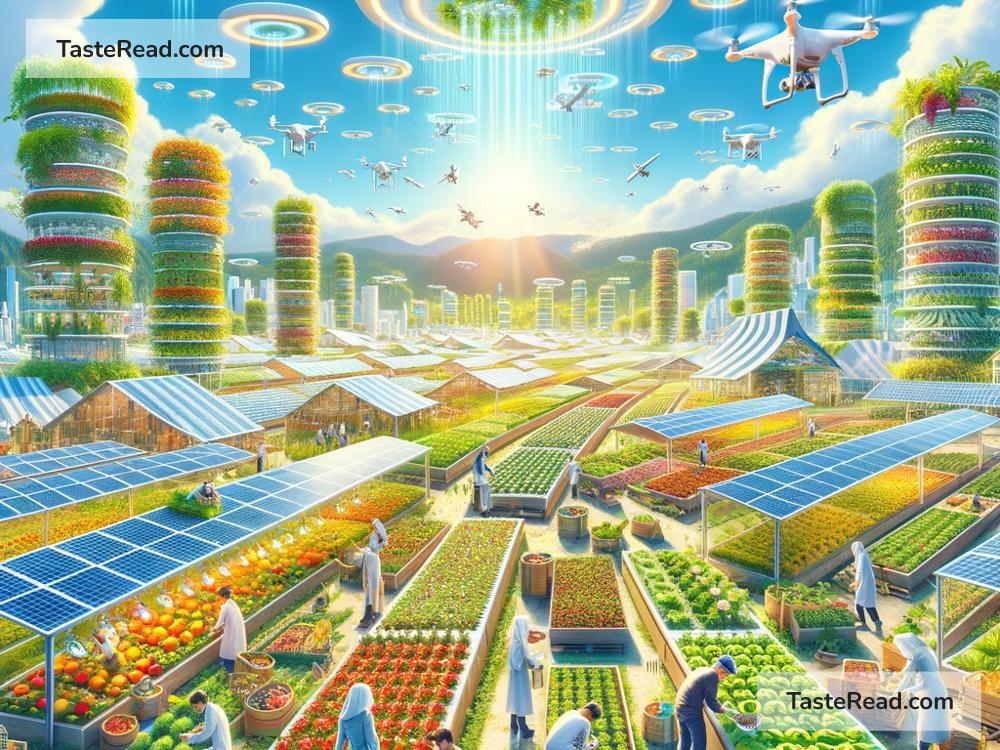The Future of Food: Regenerative Systemic Collaboration for a Healthier Planet
Food is one of the most important parts of our lives. Every day, we rely on the meals we eat to fuel our bodies, connect with loved ones, and celebrate culture. But the way we grow, process, and consume food today is creating big challenges for our planet. Climate change, soil erosion, food waste, and unequal access to healthy food are problems that need urgent solutions.
The good news is that a new approach called regenerative systemic collaboration is changing how we think about food. It’s a way of working together across industries, communities, and ecosystems to create a sustainable and healthy food system for the future. In this blog, we will explore how this innovation can reshape agriculture, improve the environment, and make healthy food accessible for everyone.
The Problems with Our Current Food System
Today’s food system works on a large scale, with farms, factories, and supermarkets feeding billions of people. While this system has made food more available than ever before, it has caused serious harm to the environment. Intensive farming techniques, including the use of chemical fertilizers and pesticides, deplete the soil. Over time, soil erosion makes it harder to grow crops, leading to lower yields and a reliance on even more chemicals.
On top of that, agriculture is a major contributor to global climate change. From deforestation to emissions caused by livestock, the way we produce food puts pressure on natural resources like water and biodiversity. Food waste is also a growing issue—about one-third of the food we produce globally is thrown away, increasing greenhouse gas emissions and wasting resources.
Lastly, not everyone has equal access to healthy food. In many communities, highly processed and cheap food is easier to get than fresh and nutritious options. This unequal distribution leads to rising levels of obesity and malnutrition around the world.
What Is Regenerative Systemic Collaboration?
Regeneration is all about healing the planet and restoring natural systems. Regenerative agriculture focuses on practices like improving soil health, protecting water resources, and increasing biodiversity. These techniques can help farms become more sustainable in the long term, while still producing enough food to feed growing populations.
Systemic collaboration means working together across different parts of the food system—farmers, scientists, businesses, policymakers, and consumers—all contributing to common solutions. Everyone plays a role! Instead of working in isolation, stakeholders share knowledge, tools, and resources to create a healthier relationship between people and the planet.
Regenerative systemic collaboration combines these ideas to create a food system that not only feeds us but also heals the environment. This approach doesn’t just focus on small changes—it aims to transform the entire way the food industry works.
Tools for Transforming the Food System
-
Regenerative Farming Practices
Regenerative agriculture includes techniques like composting, crop rotation, using cover crops, and reducing chemical inputs. These methods help restore soil fertility, absorb carbon dioxide, and reduce the need for irrigation, supporting healthier ecosystems and better food production. -
Smart Technology and Innovation
Technology plays a big role in creating solutions for the future of food. Precision farming tools, like sensors and drones, allow farmers to monitor crops and use resources more efficiently. Biodegradable packaging innovations can reduce plastic waste, while food preservation technologies can minimize spoilage and waste. -
Circular Food Systems
In a circular food system, waste is minimized and reused. For example, scraps from restaurants can be composted into nutrient-rich soil. Food companies can repurpose byproducts to create new products instead of throwing them away. Circular systems focus on keeping resources in use, benefiting both businesses and the environment. -
Community-Driven Solutions
Local communities have powerful knowledge about growing food in sustainable ways. Empowering small farmers, indigenous groups, and urban food cooperatives to share their practices can inspire global systems to be more equitable and regenerative.
Why Collaboration Is Key
No single individual, company, or government can solve the challenges of the food system. Collaboration is essential. Farmers can partner with scientists to test climate-resilient crops. Governments can create policies that support sustainable practices and reduce food waste. Businesses can invest in eco-friendly innovations and pay farmers fair wages. Consumers can drive demand for healthier, sustainable foods by choosing local and organic options.
Imagine a world where food production regenerates ecosystems and provides equitable access for all. This vision can become reality if everyone works together, breaking down silos and contributing to a shared purpose. Through education, communication, and cooperation, we can transform the future of food.
Benefits of a Regenerative Systemic Approach
When food systems prioritize regeneration and collaboration, the benefits ripple across the planet:
– Healthier Soil and Ecosystems: Regenerative farming techniques restore soil fertility and reduce pollution, improving food quality and environmental health.
– Improved Climate Resilience: By reducing emissions and restoring ecosystems, regenerative food systems can help fight climate change and adapt to extreme weather.
– Economic Opportunities: Farmers, innovators, and food companies can all benefit economically from sustainable practices, reducing inequalities in the food system.
– Healthier Communities: Increasing access to nutritious food improves public health and reduces the burden of diseases caused by poor diets.
Looking Ahead
The future of food isn’t just about what we eat—it’s about how we care for the planet and for one another. Regenerative systemic collaboration is a hopeful and practical path forward. By working together to heal our food systems, we can ensure a sustainable, healthy, and equitable future for generations to come.
The next time you sit down for a meal, think about the journey your food has taken to reach your plate—and imagine the possibilities for a food system that nourishes both people and the planet. That future starts today.

